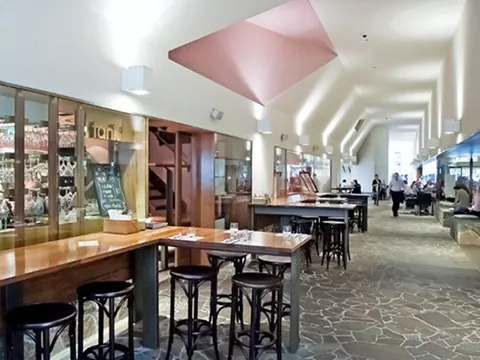6 Proven Techniques for Crafting Strong Company Culture in Coworking Spaces
By Rob Press

Company culture plays a crucial role in coworking spaces, serving as a key differentiator for teams within these shared environments. It provides a framework for behaviour and decision-making, helping teams maintain their identity amidst a diverse mix of professionals.
This culture is essential for ensuring that team members work cohesively, aligned with shared values and objectives, even in a communal workspace.
The article will cover six key techniques for you to establish a strong company culture in coworking spaces. Each technique addresses the specific challenges of coworking environments, offering you practical advice for enhancing team dynamics and productivity in these settings.
#1: Define and Communicate Company Culture
In the context of coworking spaces, establishing a well-defined company culture creates a unique identity for a team, distinguishing it from others in a shared environment. This clarity helps in guiding behaviour and decision-making, ensuring effective operation within a diverse workspace.
A well-communicated company culture plays a significant role in maintaining team cohesion and consistency in a coworking environment. It ensures that team members are aligned with the company’s ethos, fostering a unified approach to work. This is particularly important in a shared space, where teams encounter diverse working styles and practices.
Communication of company culture in coworking spaces is critical for aligning team values and goals. Effective strategies include consistent messaging through internal communications, regular team meetings, and the use of visual reminders of the company’s values. These methods help reinforce the culture and ensure that it is understood and adopted by all team members.
#2: Prioritise Strong Internal Communication
Effective communication is fundamental in coworking spaces to ensure a well-coordinated team. It helps in bridging gaps that may arise from working in a shared space with various external distractions. Clear and frequent communication helps teams stay synchronised and focused on their objectives.
There are numerous methods to keep a team synchronised and informed in a coworking environment, and they include:
- Regular team meetings: Hold periodic meetings, such as daily stand-ups or weekly briefings, to discuss progress, address concerns, and align on objectives. This ensures everyone is aware of project updates and team priorities, enhancing clarity and unity through face-to-face interaction, which is crucial in a coworking environment.
- Digital communication tools: Utilise instant messaging and email platforms like Slack, Microsoft Teams, or similar tools for continuous communication. These tools are essential for quick updates, clarifications, and maintaining a constant connection among team members, irrespective of their physical location within the coworking space.
- Collaborative platforms: Implement shared spaces for document collaboration, project management, and task tracking, using platforms like Trello, Asana, or Google Workspace. This approach enhances transparency and accountability by allowing everyone to see real-time updates on project progress and individual contributions.
- Regular updates and newsletters: Distribute important information, updates, and achievements through weekly or monthly newsletters or an internal blog. This practice keeps everyone informed and engaged with the broader goals and happenings of the company, celebrating milestones, and highlighting individual or team accomplishments.
These methods aid in ensuring that all team members are up-to-date and aligned with ongoing projects and company developments.
Integrating online HR software can significantly streamline internal processes, enabling efficient management of team communications and HR tasks, keeping everyone on the same page.
The right tools and practices ensure that team members feel connected and are actively engaged, regardless of their physical location within the coworking space.
#3: Encourage Team Bonding Activities
In coworking spaces, interactions with external parties are frequent — that’s why internal team bonding becomes essential. It strengthens relationships within the team and fosters a sense of belonging. These bonding activities are crucial in building a cohesive team dynamic, which can be challenging in a shared workspace.
Suitable team bonding activities for coworking spaces include group lunches, team-building exercises, and shared learning sessions. These activities can be conducted within the coworking space or offsite. They are designed to foster collaboration and understanding among team members, enhancing the overall team spirit.
Engaging in team bonding activities has a positive impact on team morale and collaboration. It helps in breaking down barriers, improving communication, and building trust among team members — which ultimately leads to a more harmonious and productive work environment, as well as achieving team and organisational goals.
#4: Lead by Example
Leadership plays a pivotal role in setting and reinforcing company culture, especially in coworking spaces. The behaviour and attitudes of leaders are often mirrored by their teams.
Leaders can embody company values by demonstrating a commitment to these principles in their daily actions and decisions. This can include showing respect for coworking space norms, actively participating in team activities, and being open to feedback.
The behaviour of leaders significantly influences both the team's dynamics and external perception of the company. When leaders exemplify the company's values, it fosters a strong, cohesive team culture and positively impacts how the team is viewed by others in the coworking space.
This alignment between leadership behaviour and company culture is crucial for building a reputable and effective team.
#5: Create Feedback Mechanisms
Regular feedback enables teams to gauge how the coworking setup impacts their work and culture. Feedback mechanisms help identify areas for improvement and adapt strategies to enhance the team's experience and effectiveness in the shared space.
Effective methods for gathering feedback include:
- Surveys: Distribute periodic surveys to team members to gather their opinions and feedback about the coworking environment and team dynamics. These surveys can be anonymous to encourage honest and open responses, covering various aspects like workspace comfort, team interactions, and overall satisfaction.
- One-on-one meetings: Conduct personal meetings between team members and their managers or HR representatives. These meetings provide an opportunity for in-depth, personalised discussions, allowing team members to share their experiences, concerns, and suggestions in a confidential setting.
- Suggestion boxes: Set up a physical or digital suggestion box where team members can drop in their ideas and feedback anonymously. This method is useful for gathering spontaneous and unfiltered input from the team, which might not be captured in formal surveys or meetings.
- Focus groups: Organise small group discussions to delve into specific topics or issues related to the coworking experience. These focus groups can provide qualitative insights and foster a sense of involvement among participants, leading to more engaged and thoughtful feedback.
- Regular feedback sessions: Integrate feedback as part of team meetings or dedicated feedback sessions. This approach ensures continuous collection of feedback and keeps the process dynamic and responsive to the team’s evolving needs and experiences in the coworking space.
These tools allow team members to express their views on the coworking experience and the team's culture. Implementing feedback involves analysing these insights and making necessary adjustments to processes, communication strategies, and team activities.
Adapting to the unique challenges of coworking spaces is a continuous process, and it should be guided by regular feedback. This adaptation might involve modifying workspace arrangements, enhancing communication channels, or revising team policies to better suit the coworking environment.
Staying responsive to feedback ensures that the team remains cohesive and productive, despite the challenges of a shared workspace.
#6: Balance Openness and Privacy
The open design of coworking spaces fosters collaboration and networking, offering significant advantages for businesses. This environment encourages spontaneous interactions and idea exchanges, which can lead to innovative collaborations.
However, it's important to balance this openness with the need for privacy, especially for tasks requiring confidentiality or focused work.
Establishing clear policies for privacy and confidentiality is crucial in coworking spaces. This can involve setting aside dedicated areas for confidential discussions or focused work. Additionally, implementing guidelines on the use of shared resources and respecting others' privacy helps maintain a professional and respectful coworking environment.
To ensure operational effectiveness in coworking spaces, it's important to strike a balance between leveraging collaborative opportunities and maintaining privacy — through thoughtful workspace design, such as incorporating private booths or meeting rooms, and fostering a culture of respect for both collaborative and individual work needs.
Future-Proof Your Culture
The importance of maintaining a strong company culture in coworking spaces cannot be overstated. It is the cornerstone of team cohesion, productivity, and identity in a shared environment.
Businesses are encouraged to implement these strategies to enhance their team's performance and cohesion in coworking spaces. Adapting these techniques to their specific contexts can lead to a more harmonious, productive, and engaging work environment, ultimately contributing to the success of their businesses.
You might also be interested in:
- The disadvantages of coworking spaces
- Coworking vs traditional office: What are the differences?
- Utilising a coworking environment
Contact Us
If you’ve got any questions call us 1300 409 755 or fill in your information below and we’ll get back to you shortly.





